Mastering Teacup Poodle Socialization: A Comprehensive Guide
We adore our small companions, especially those of the teacup poodle variety. Their loyalty and affectionate nature win our hearts over, while their intelligent and playful demeanor keeps us on our toes. These pint-sized beauties hold a special place in dog lovers’ hearts. To keep their temperament pleasant and their overall well-being balanced, socialization plays a critical role. Understandably not an innate skill, socializing teacup poodles needs a tactful, patient approach, with emphasis on positivity and consistency.
Understanding the Importance of Socialization for Teacup Poodles
Importance of Socialization for Teacup Poodles
Teacup Poodles, while small in size, require the same level of socialization as any other breed of dog. The importance of socialization in these particular dogs cannot be overstressed as it greatly impacts their behavioral patterns, health status, and overall well-being. The term socialization refers to the critical process where a young puppy learns to interact and behave properly with both humans and other animals.
Behavioral Impact
When a Teacup Poodle is properly socialized, their behavior towards humans and other animals significantly improves. Early socialization provides the foundation for becoming well-adjusted adult dogs. It helps puppies learn what is acceptable behavior and what is not, understanding the dos and don’ts of human and dog interaction. A lack of socialization often results in fearful or aggressive dogs, and in the case of teacup poodles, who are already at a physical disadvantage due to their small size, such negative behavior can make them very vulnerable.
Health Impact
Interestingly enough, socialization also affects a Teacup Poodle’s health. Socially enriched environments help to stimulate a dog’s mind and lower stress levels. This mental exercise is beneficial in reducing the risk of cognitive disorders in older dogs. Furthermore, when a Teacup Poodle is fully socialized, they tend to be calmer and have lower stress levels, which equates to healthier dogs as stress can affect their immune system.
Early Socialization Strategies
Therefore, it becomes evident that beginning socialization strategies early is of the utmost importance. By introducing your Teacup Poodle to a myriad of environments, conditions, people, and animals while they’re young, you’re ensuring that these situations to them are unthreatening and normal. From as early as seven weeks, important steps should be taken towards the socialization of your puppy.
Breeds like the Teacup Poodle, who are small and often more timid, can be extra sensitive to the lack of proper socialization. With their small stature, they’re already more prone to developing fear-based reactions. Hence, they need comforting assurances that the world is not a scary place. This can be achieved by frequent and positive interactions with various elements in their environment.
Finding Balance with Socialization
However, propriety in socialization is a matter of balance. Both over and under socialization can have deleterious effects on your Teacup Poodle puppy. Over-socialization, where a puppy is unnecessarily exposed to overwhelming situations, can result in a fearful or anxious dog. Under-socialization, on the other hand, can result in a dog that is unsociable and aggressive.
Remember that socialization doesn’t stop after puppyhood. It’s an ongoing process that continues to matter to your dog’s wellbeing as they mature. Regular walks, trips to the dog park or pet store will help your Teacup Poodle continue to feel comfortable in various surroundings.
Conclusion
The significance of correct socialization techniques for Teacup Poodles cannot be overstated. For a jovial, well-adapted Teacup Poodle, mastering such strategies is absolutely essential.
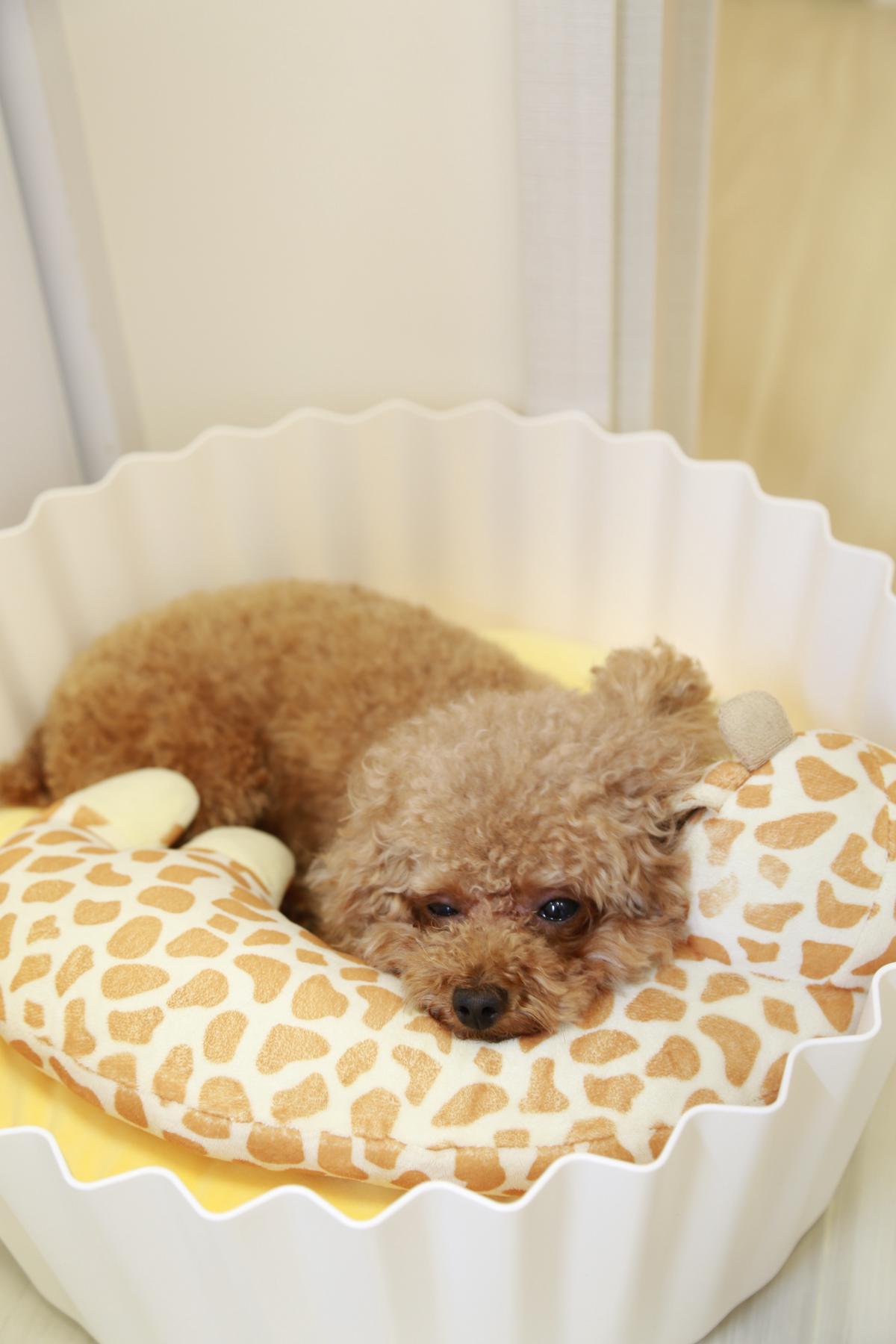
Photo by alisonpang on Unsplash
Identifying Key Socialization Stages in Teacup Poodles
The Unveiling of Teacup Poodles: Traversing Major Socialization Phases
Belonging to the larger Poodle family, Teacup Poodles are characterized by their compact size and delicate stature. Their distinct size and behaviors necessitate special attention during the socialization phase. The chief goal here is to instill confidence in them, and make them feel comfortable with different situations, individuals, and other animals. This measure demands a variety of tactics and approaches at each stage of their growth and development.
Puppyhood: The Crucial Stage for Socialization
Puppyhood, typically the period from birth to about six months, is a critical timeframe for socialization in Teacup Poodles. Early exposure to varied environments, individuals, and experiences is instrumental in molding their temperaments and behaviors in the long run.
At their tender age of two to four weeks, puppies start exploring their surroundings. However, caution is crucial, as these puppies are still too fragile for more robust socialization efforts. Minimal exposure to limited and safe environments, like different rooms in the house, small toys, and close family members, is recommended.
From the fourth week to the twelfth week, Teacup poodles experience a rapid development stage, also known as the primary socialization stage. This phase is ideal to introduce them to diverse experiences, people, and animals, ensuring that interactions are positive and non-threatening. Failure to adequately socialize during this period could lead to fearfulness and aggression in the future.
Adolescence: Balancing Social Skills
After six months, Teacup Poodles enter adolescence and exhibit a noticeable shift in behavior as their hormones kick in. Often, there’s a resurgence of apprehensive behaviors around what they were accustomed to as puppies, making it crucial to reinforce prior socialization efforts. Balanced and consistent exposure to various situations and individuals can assist you in navigating through this stage, paving the way for a well-rounded adult teacup poodle.
Adulthood: Mature and Consistent Socialization
While the foundational socialization stages occur during puppyhood and adolescence, the process doesn’t end. Continued socialization into adulthood is vital in maintaining the Teacup Poodle’s social skills and reducing their anxiety levels. This period allows for more sophisticated interactions, with the pet to encounter a broader range of experiences. Regular opportunities for social contact, for example, walks, playdates, or obedience classes, foster a well-adjusted adult Teacup Poodle.
In closing, it is crucial to comprehend the important stages of socialization in Teacup Poodles to effectively fulfill their needs and adapt to their behaviors at every stage. Each Teacup Poodle has its unique characteristics, which may result in slight variances in their socializing process. Nevertheless, the overarching strategies involving gradual exposure, positive encouragement, and consistent reinforcement during each step serve as a sound foundation for this process.
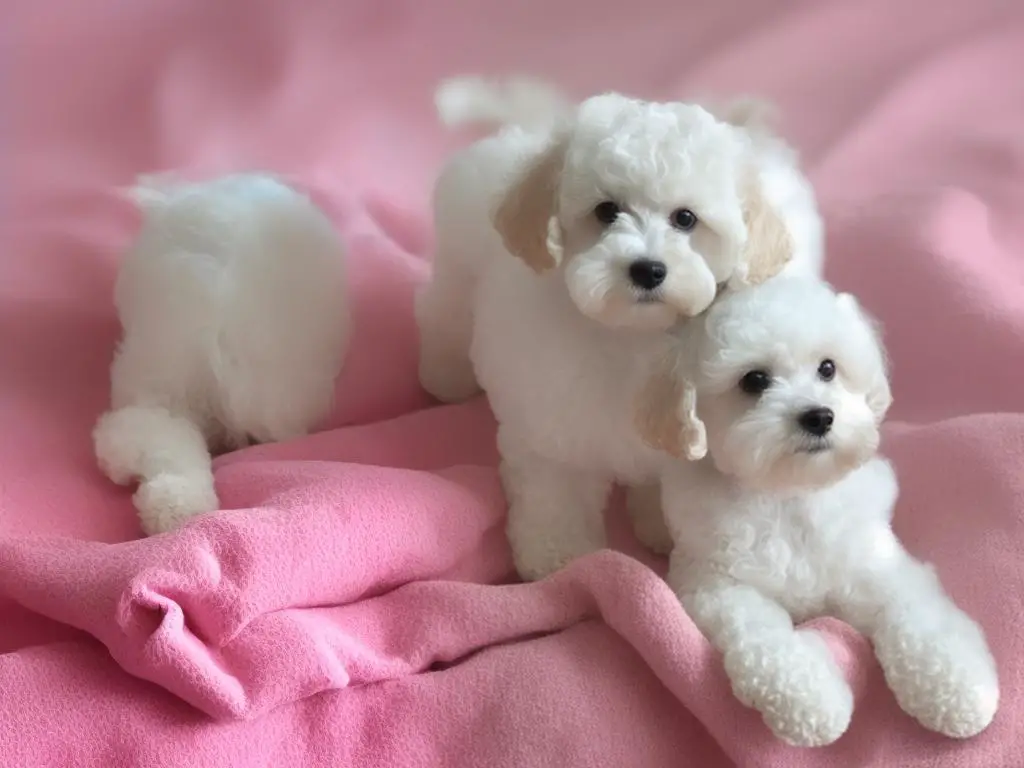
Effective Techniques for Socializing Your Teacup Poodle
Delving Deeper into the Socialization Development of Teacup Poodles
The socialization of Teacup Poodles is a methodical process of gradually introducing the dog to novel experiences, encompassing diverse environments, interactions with other species, and introductions to unfamiliar people. This prolific phase of learning and exploration typically starts during their puppy years, driven by their innate curiosity. The objective is to provide them with a wide variety of stimuli in a secure and disciplined manner, which ultimately enhances their confidence and prevents the development of fear or anxiety.
Exposure to New Experiences
It is beneficial for your teacup poodle to be familiarized with a wide variety of household sounds, from vacuum cleaners to doorbells. This exposure helps them avoid becoming shock-prone or anxious in day-to-day situations. Additionally, introducing them to different types of terrain such as grass, concrete, dirt, and carpet can help boost their confidence when they encounter such surfaces in the outside world.
Exploring New Environments
Taking your teacup poodle to different environments can greatly assist in their socialization. Start by visiting quiet, less busy areas like your backyard or a low-traffic park before embarking on noisier, busier places like bustling parks or city streets. Consistent exposure to diverse environments helps them adjust to unfamiliar surroundings.
Introducing New People and Animals
Your teacup poodle’s socialization should involve interactions with various types of people, including children, the elderly, and people wearing hats or glasses. If possible, also introduce your poodle to other dogs and even different animals. This allows them to understand how to behave appropriately when they encounter various beings as they grow older.
Positive Reinforcement Techniques
Rewarding your teacup poodle for positive behavior is pivotal during the socialization process. Rewards can be in the form of treats, praise, or petting which allows them to create an association between good behavior and the reward given. This strengthens their learning and makes them more likely to repeat the desired behavior in the future.
Addressing Fear and Anxiety
It’s normal for your poodle to exhibit fear or anxiety when exposed to unfamiliar experiences. When this occurs, do not force your dog to step into situations they are uncomfortable with, instead, gradually introduce them to the fear factor until they become comfortable. If your poodle remains anxious despite progressive exposure, consult with a professional dog trainer or a veterinarian for advice.
Building a Regular Socialization Routine
An essential element in socializing your teacup poodle is consistency. Create a blend of different social experiences incorporated into your daily routine to make sure your pooch gets regular social interactions. Additionally, remember to take things slowly and keep encounters as positive as possible to ensure your poodle develops confidently and fearlessly.
The Importance and Long-Term Benefits of Socializing Teacup Poodles
Teacup poodles, when properly socialized, grow up to be delightful companions, displaying love, trust, and happiness. The daily interactions your poodle has with you and others, and its exposure to a variety of settings and experiences are integral to molding its behavior towards people and its environment. Inculcating good social habits is therefore crucial to curbing any behavioral issues your tiny, furry friend may face and making it a pleasure for all around.
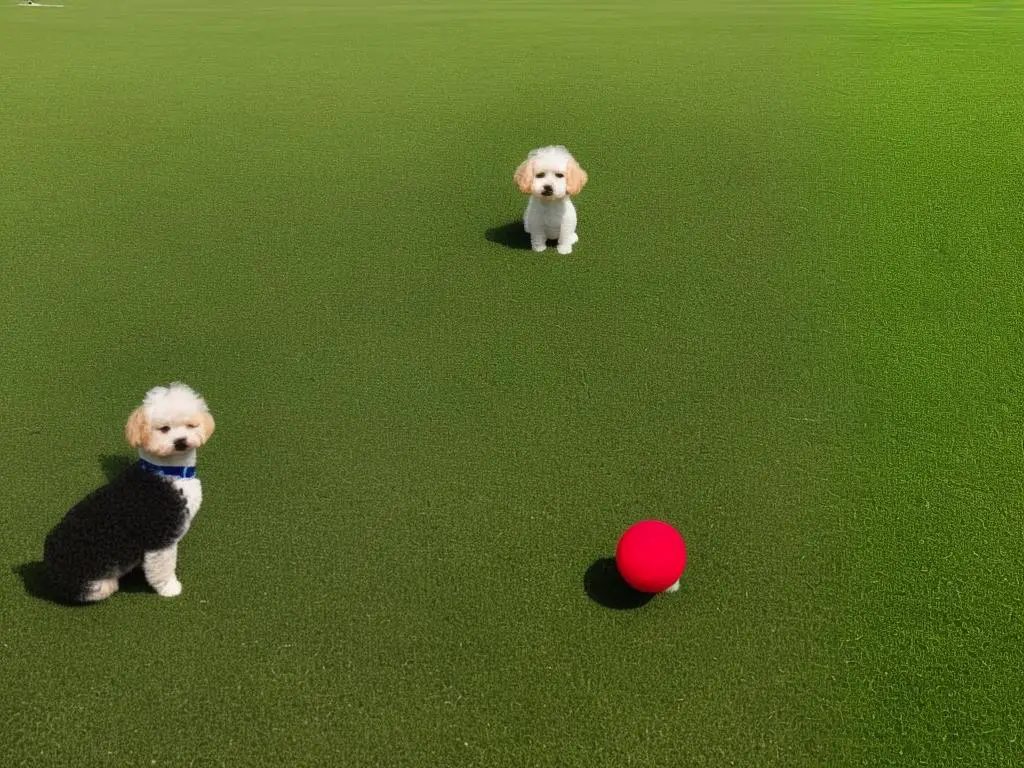
Dealing with Socialization Issues and Setbacks
Manifestation of Behavioral Issues in Teacup Poodles
Despite their charming nature, teacup poodles can encounter socialization setbacks. Two such commonplace behavioral issues include aggression and fearfulness. Recognizing these characteristics, decoding their origin, and implementing strategies to rectify them, is a significant part of ensuring a balanced and content life for your teacup poodle.
Decoding Aggression and Fearfulness in Teacup Poodles
Aggression in poodles can display itself in forms ranging from growling and snarling to biting. This behavior, often misconstrued as an inherent trait, is essentially a manifestation of fear, anxiety, or misinterpretation.
Conversely, fearfulness might result in behaviors fueled by anxiety such as excessive barking, stressing over trivial matters, or becoming excessively timid or reserved. It’s important to acknowledge that these are not innate traits but a sign of the poodle’s discomfort or confusion about its environment.
Origin of Aggression and Fearfulness
These behaviors of aggression and fearfulness can be attributed to a spectrum of factors. Genetic predispositions can contribute to these behaviors if the parent breeds were prone to them. Early socialization experiences, traumatic incidents, and pain or discomfort from medical issues may incite these behaviors as well.
However, a significant and often overlooked cause is the lack of proper socialization. Without proper exposure to other animals, humans, or various settings, teacup poodles may develop these undesirable traits.
Addressing and Overcoming Socialization Setbacks
It might seem daunting to address issues like aggression and fearfulness in your teacup poodle, but with certain dog behavior modification techniques, correction is achievable. Systematic desensitization, a method that gradually and safely introduces the fear or aggression stimulus in a controlled manner, can prove effective. Additionally, positive reinforcement, rewarding your poodle for desirable behavior, along with counter-conditioning, reorienting their emotional responses towards scary or aggressive situations, can collectively engineer a positive outcome.
Seeking the Guidance of a Professional
While mild issues can be improved with patience, consistency, and the previously mentioned techniques, some severe cases warrant professional intervention. If the aggressive behavior puts others at risk, do not hesitate to consult a professional dog trainer or an animal behaviorist. This professional should ideally have reputable experience handling aggressive dogs or, better still, specifically with teacup poodles.
Every dog is different, and their response to various treatments can vary. It’s important to engage with professionals who comprehend this and are willing to tailor their strategies based on your poodle’s unique needs and character traits. If home training hasn’t yielded results or if your poodle seems perpetually distressed due to fear, a professional can offer specific, effective strategies and treatments to catapult your teacup poodle out of their social setbacks.
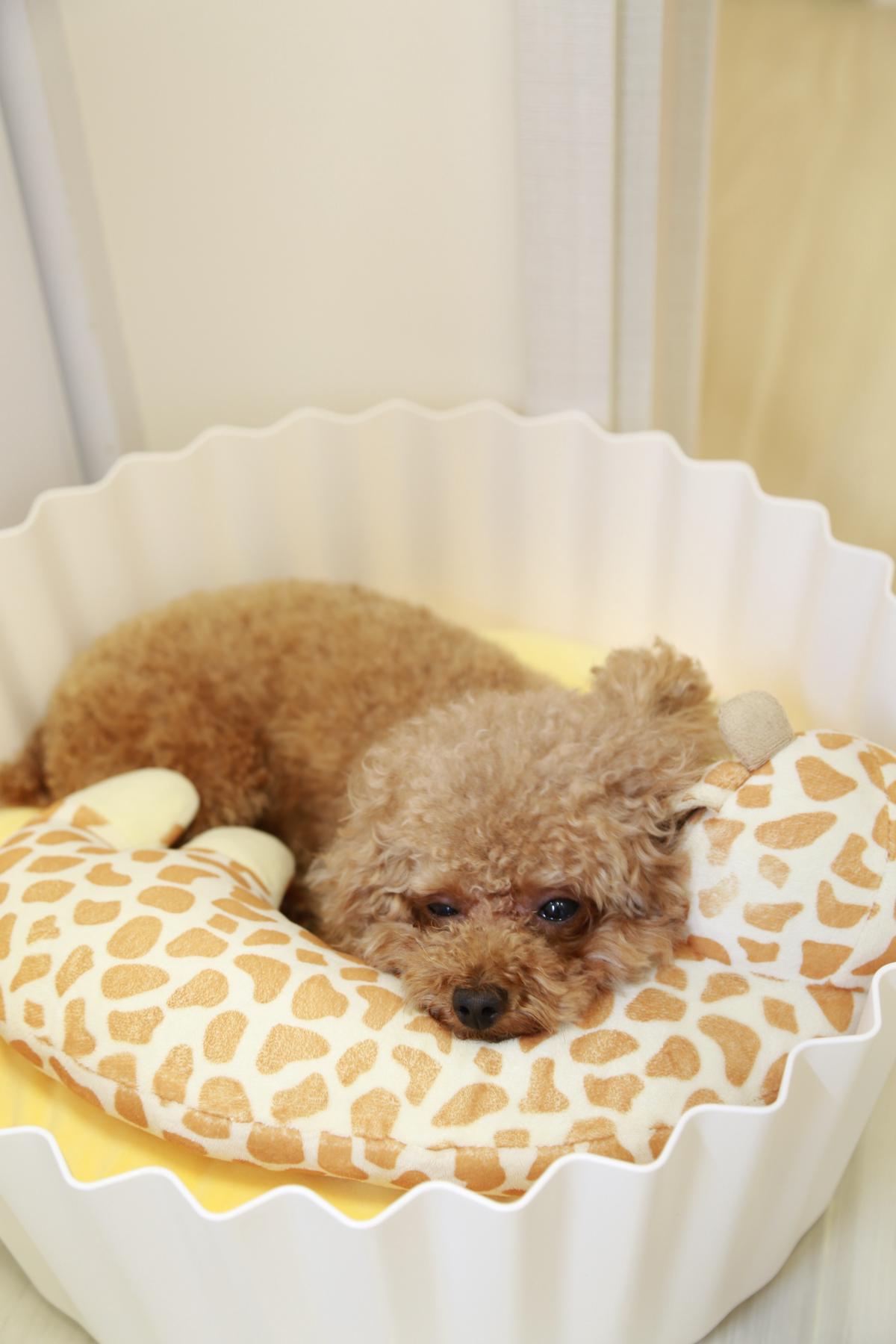
Photo by alisonpang on Unsplash
Maintaining and Enhancing Socialization Throughout Your Teacup Poodle’s Life
Recognizing the Importance of Continuous Socialization for Teacup Poodles
Known for their petite size and lively nature, teacup poodles thrive on consistent, life-long socializing efforts. Regular, strategic interactions foster their development into content, well-adjusted pets while curbing anxiety and aggression. As the goal of effective socialization is enduring, the techniques used should be flexible, continuous, and ever-evolving to accommodate the teacup poodle’s growth and changes.
Keeping Socialization Activities Interesting and Effective
The key to maintaining effective socialization routines with your teacup poodle is versatility. Varied experiences will help broaden your pet’s understanding of the world around them and their reactions to it. Involve different people, expose them to new environments, and introduce other pets or animals.
To keep it interesting, think of games involving humans and pets alike or engage in doggy daycare where they have a chance to play with other dogs. Training classes can also be an excellent avenue for both education and socialization.
Overcoming Changes in Circumstances or Environments
Changes, whether dramatic or subtle, can significantly impact the life of your teacup poodle. Moving homes, arrival of a new family member, or even the simple act of rearranging furniture can cause anxiety. It is, therefore, essential to handle such changes carefully.
Slow and gradual transitions are often best, giving your poodle time to adjust. Remain patient and use positive reinforcement to help them cope. If you struggle with particularly difficult transitions, do not hesitate to seek professional help.
Handling Age-Related Socialization Challenges
As your teacup poodle ages, new socialization challenges may arise — diminished sensory abilities or age-related health issues can affect their interaction levels. Their tolerance to robust play may decrease, making them more nervous around energetic dogs or lively children. They may become more uncomfortable with sudden changes, needing gentler shifts.
It’s important to notice these changes and adjust their socialization plans accordingly. Senior dog-friendly activities, such as scent-based games or gentle, short walks with well-behaved dogs can be good substitutes for their prior enterprising games. Making these necessary adjustments can ensure their twilight years are just as socially fulfilled with reduced stress levels.
Assessing and Addressing New Challenges
New challenges or problems may also emerge due to past traumatic experiences, changes in health, or developing fears. If your teacup poodle starts showing signs of anxiety or aggression out of the blue, it may be time to reassess their socialization routine.
If unsure, consult with an animal behaviorist or your vet. They can help identify any underlying issues and advise on the best course of action tailored to the specific needs of your poodle. Monitoring and periodically re-evaluating your poodle’s behavior is crucial to creating a thriving socialization plan.
In conclusion, consistent, adaptable, and proactive approaches to socialization will ensure your teacup poodle’s mental welfare and their ability to adapt and behave suitably in diverse situations throughout their life.
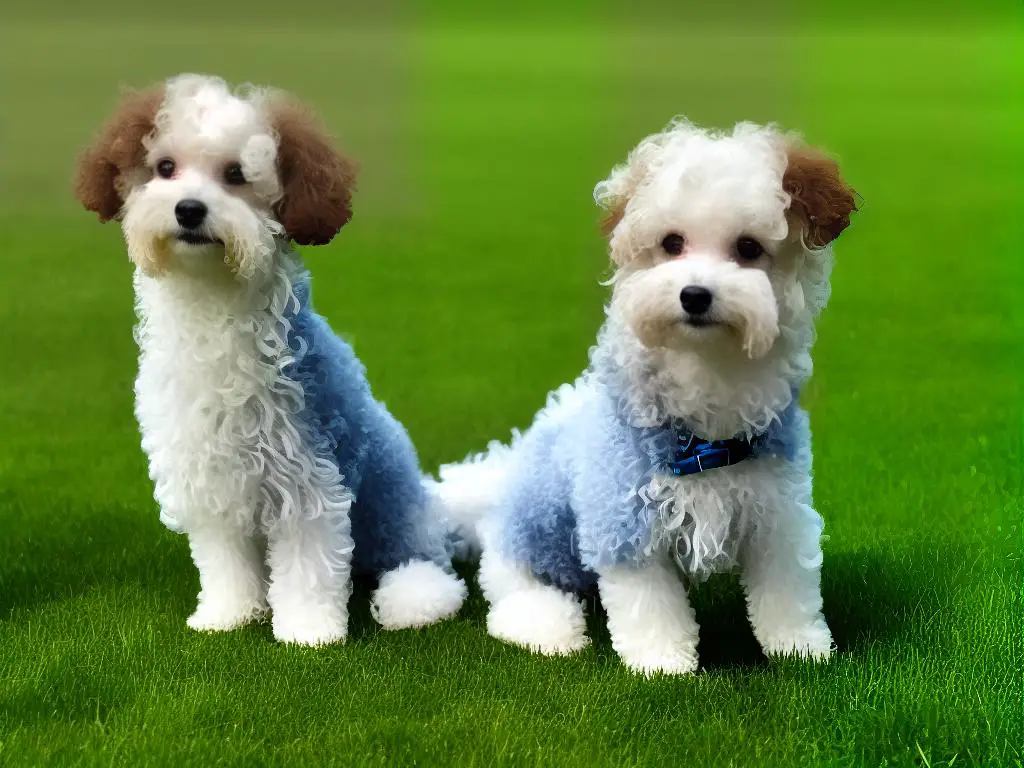
As they age, these diminutive bundles of joy may experience new challenges that call for a revision of their socialization strategies. That said, the need for fostering healthy socialization never fades, but simply evolves to meet the needs of the ever-changing aspects of their life. Understand that every teacup poodle is unique and there is no one-size-fits-all solution. The rewards of creating and maintaining a strong bond with your well-socialized teacup poodle, filled with trust, understanding, and mutual respect, are truly priceless. With this guide at your disposal, may your journey with your tiny yet resilient companion through the meandering paths of socialization be a breeze.
